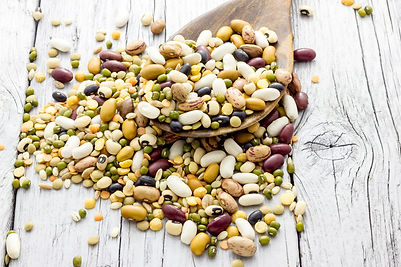
Aquaculture
Leader: Dimitris Barkas (NIREUS Aquaculture, Greece)
This transition network is focused on developing the use of European-grown grain legumes in the production of farmed fish in the Mediterranean. It comprises four actor groups involved in the aquaculture value chain:
-
Irish Grain Legumes Group
-
German Pea and Bean Network
-
LegumesforFish
-
Europe Soya Value Chain Development Group

The European Union is a global leader in fish farming with a focus on five fish species: Atlantic salmon, rainbow trout, European sea bass, gilthead sea bream and common carp. The demand for high quality raw materials are constantly increasing in the fish feed industry. If aquaculture is to contribute to sustainable protein use, it must be based on the efficient conversion of plant protein into fish with minimal use of fishmeal. Grain legumes are good sources of high quality proteins. However, carnivorous fish are particularly sensitive to some specific components of grain legumes that can impair protein digestibility, amino acid bioavailability and severely affect pancreatic function. Depending on the legume species, there are several anti-nutritional factors affecting the nutritional performance of fish diets. Moreover, the use of any legume-based sources of protein must be cost competitive compared to any alternatives. Currently, the major EU fish farming countries import more than 50% and up to 90% of the high-protein plant-based feed ingredients from countries outside of the EU.
This network is examining the current limitations to using European legumes and compiling knowledge and knowhow available to the consortium, complementing this with field demonstrations. The challenges are both technical, related to protein content, amino acid profiles, anti-nutritional factors and enhanced protein digestibility, and financial, related to cost effectiveness of legume use in fish feeds.
The overall goal is the development of an innovative legume-based fish production chain. The specific technical ambition is to generate specifications for the use of legumes in fish feeds and to develop a fish-legume certification to add value to EU-certified legumes, and to boost competitiveness of both certified agriculture and aquaculture. The network does this in close collaboration with other Legumes Translated transition networks. The Greek involvement is particularly relevant because even though Greece is the leading Mediterranean aquaculture country, it is highly dependent on imported plant protein. This challenge will be tackled with examination of crop production and advanced processing methods, as well as the introduction of specialised analytical methodology for quality.
